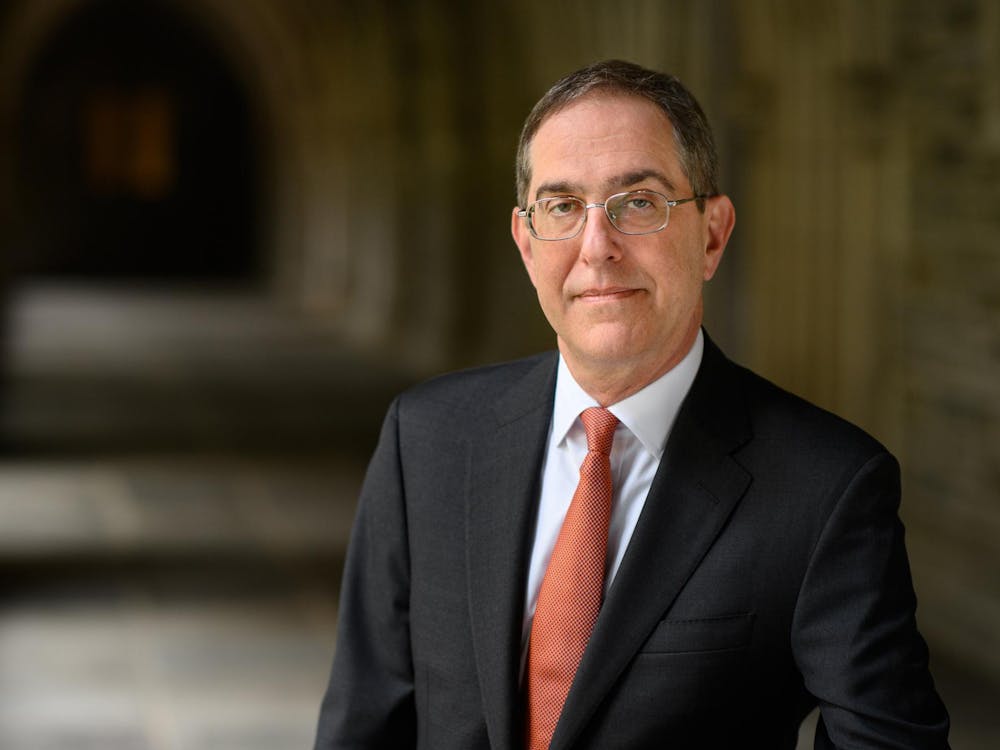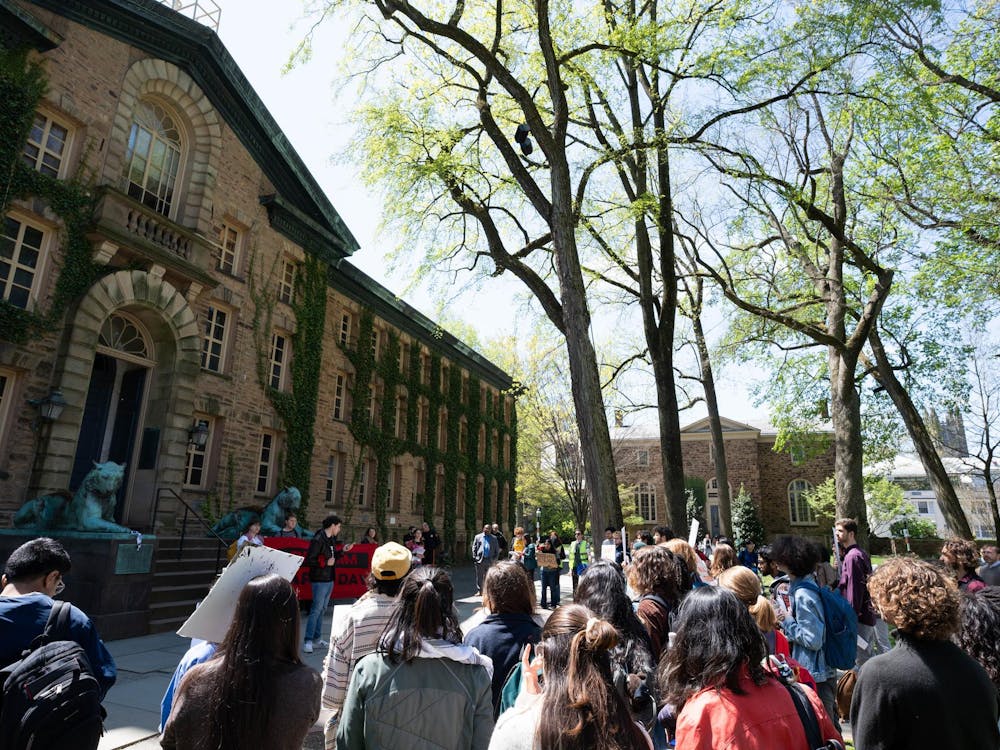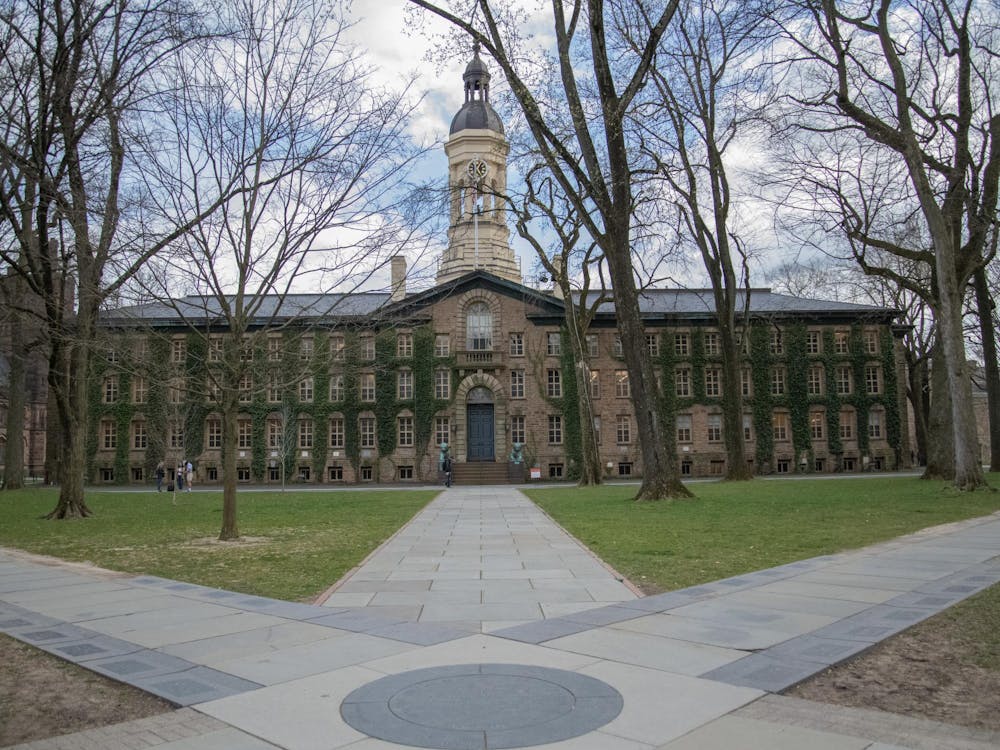Between October and December 2015, 142 Palestinian civilians were killed by Israeli Defense Forces. Of those 142, 27 were children. In the same time period, 15,620 were injured by the IDF. Among those, over 1,500 were injured by live ammunition and over 3,000 were injured by rubber-coated bullets. This was in the span of just two months. And this is nothing new. Palestinians have been subject to the terror and reign of an illegal military occupation since 1967. That’s 41 years — 41 years at the mercy of an occupying force. 41 years of being told that they can’t decide their own fate. 41 years of risking violence merely by remaining in their homes.
Quite frankly, it is disappointing that Tigers for Israel would denounce the wall constructed by Princeton Committee on Palestine in conjunction with Princeton DREAM Team. In a letter to the editor published on Wednesday, TFI claimed that “PCP builds walls on the Frist lawn that physically and emotionally divide campus.” It is nonsensical that TFI would take this position on the display while defending the Israeli apartheid wall itself, a structure that does just that. The aim of the campus installation is to show that the wall inside the West Bank is not only divisive, but perhaps the most recognizable symbol of the occupation and of the crippling lack of self-determination given to the Palestinian people.
The wall shows all of campus how the narrative is already skewed. In their letter to the editor, TFI alleged that PCP is “perpetuat[ing] one-sided, misleading narratives.” This is not only accusatory, but also inaccurate, ignoring the fundamental asymmetry of Israeli-Palestinian relations. The real-life wall will ultimately annex 9.5% of the West Bank into Israeli territory. According to TFI, it is misleading to point out that the apartheid wall, along with checkpoints, roadblocks and more, contribute to the “bantustanization,” or fragmentation of the West Bank, which cripples the Palestinian economy. In doing so, TFI renders Israeli-Palestinian dialogue unproductive by imposing a fundamental power gap. Under this system, Israel holds all of the cards, appropriating Palestinian natural resources and destroying civilians’ mobility, access to power and self-agency. Furthermore, Schechner compares the wall to the American institution of the Transportation Security Administration, yet this analogy couldn’t be more inane. The TSA does not consistently hold all Arabs for hours at a time. It does not routinely turn people away for no reason. It does not restrict movement within the United States itself. It does not keep you from moving from Princeton to Trenton. It does not make roads only meant for use by Americans.
The occupation hurts all parties, but the perpetuation of a narrative of Israeli victimhood while Palestinians suffer under the control of Israeli security forces is dishonest and hypocritical. PCP condemns terror attacks in no uncertain terms, but it is inaccurate to argue that the wall serves to reduce them. First, and foremost, the claim that the wall is the reason for a reduction in suicide bombings in Israel is flawed. According to Haaretz, a leading Israeli paper, “the main reason over the past year is the truce in the territories.” Proponents of the wall often cite the 2003 fall in suicide attacks inside Israel as evidence of its success, when in fact the wall was only 20 percent complete by this point, and was just 50 percent complete by 2006. Rather, the drop-off in terrorism is attributable to a unilaterally-declared Hamas ceasefire in the West Bank beginning in 2004-05. The relationship between the erection of the wall and fewer terror attacks is correlational, not causal. Determined terrorists have still found ways to bypass the wall since its inception.
If the wall doesn’t increase security, what does it do? It enforces a system of collective punishment against Palestinians that renders efforts at “trust-building” supported by TFI impossible.
TFI has done nothing to advance productive discourse with regard to the Israeli-Palestinian conflict. Their op-eds — including the most recent one against the wall display — counter-protests and negative campaigns are reactionary, solely a response to PCP activism and programming. Such an approach, intentional or otherwise, has only served to solidify the status quo, justify the disenfranchisement of Palestinians and exclude Palestinian voices from the dialogue. Rather, PCP formally invites TFI to condemn the occupation and work towards dismantling its systemic, collective injustice — including the wall. Such action is the only path to sustainable peace for Israelis and Palestinians alike.
Signed,
The Princeton Committee on Palestine
Sarah Sakha recused herself from the writing of this article.









